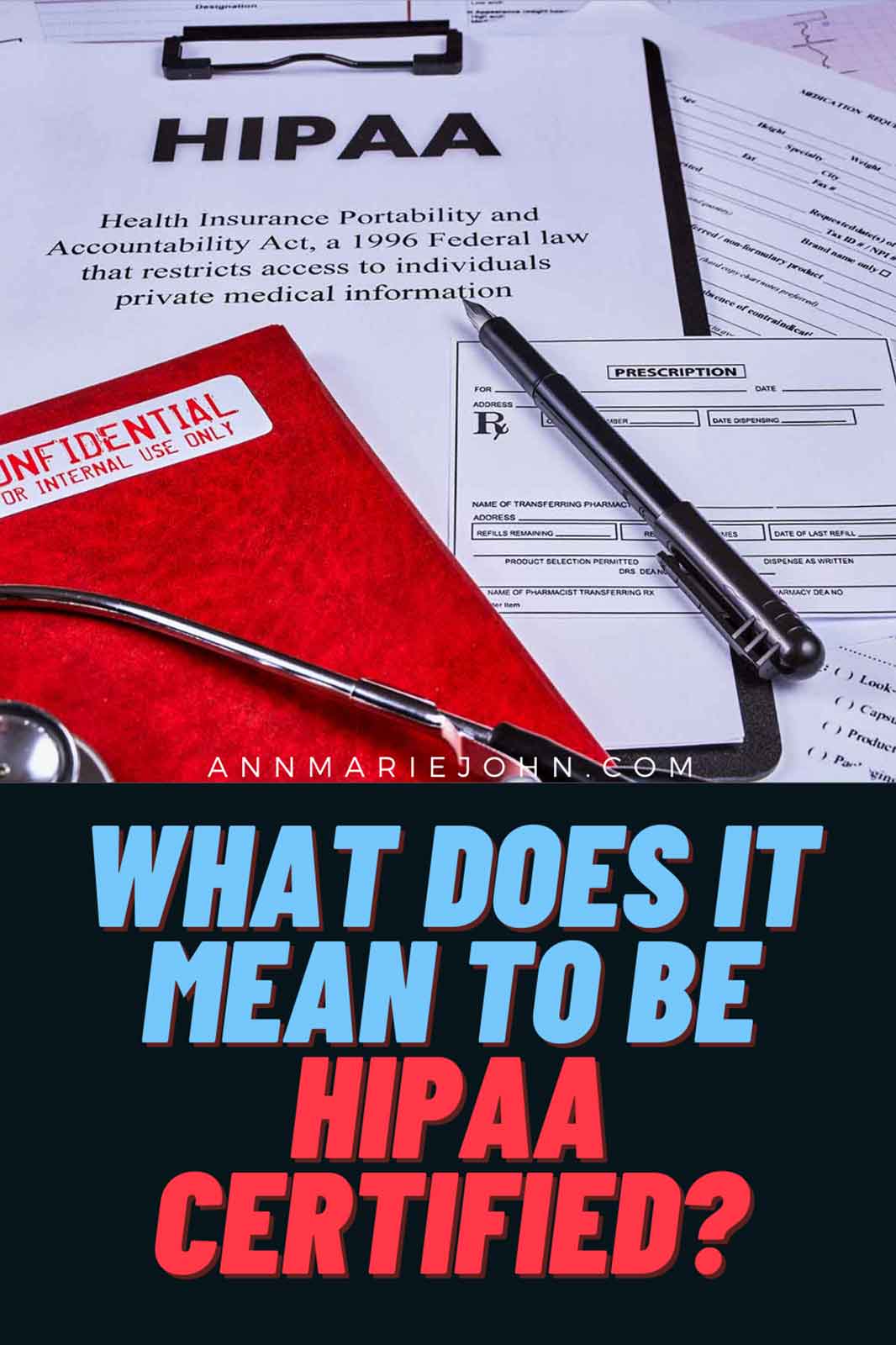If you work in the healthcare industry or consider a job in that field, you have probably heard of HIPAA. Maybe it sounds confusing or complicated, but don’t worry. You are not alone! Now is the best time to learn everything you need to know about it.

HIPAA is short for Health Insurance Portability and Accountability Act. This is a federal statute enacted in 1996., signed by President Bill Clinton. It was created to try modernizing healthcare information and protecting the industry from theft and fraud.
It protects workers and their families in case they lose or change their jobs, making sure they don’t lose their health insurance. It sets guidelines for electronic health care transactions, life-insurance policies owned by companies, medical accounts, group health plans, etc.
So, what is HIPAA certification? This is a frequently asked question. A variety of providers offer training and certificates for individuals or organizations. Some employers may require a HIPAA certification. There are many programs and courses to choose from, so be sure to do your research and choose the best provider for your and your employer’s needs.

Do You Need to Comply With HIPAA?
If you work in or with the healthcare industry, this may be very useful to you, especially if you have access to protected health information. For example:
- Health insurance companies
- Nurses
- Medical staff
- Physicians
- Hospital administrators
- Healthcare providers
- Healthcare clearinghouses
- Employer group health plans
- Lawyers
Why is HIPAA Training Important?
A violation of HIPAA’s requirements can result in huge fines, lawsuits, and criminal indictments, especially for companies. The violation doesn’t need to be intentional. You already know you shouldn’t give out the patient information to a third party. But sometimes you may do things like:
- Leave your desk unintended with a patient folder on it
- Email patient information to your private email, so you can work from home
- Forget to log off the computer that contains patient information
- Discuss private information in a public area
This is a serious violation that can cost you and your company millions of dollars.
Patient information is also digitally vulnerable, especially nowadays due to hackers. It is essential to have a good team to prevent data breaches and a proper cyber-security system.
One of the things HIPAA training is trying to do is to allow anonymous reporting of the violations and therefore protect the employees.
How to Become HIPAA Certified?
The answer is to take a HIPAA certification course. There are many courses available, both offline and online, so you can decide which is more convenient for you. Most courses don’t require you to have any previous knowledge. If you are curious about what you will learn at your training, check this out. Most providers promise you will:
- Have a better understanding of HIPAA
- Learn about ePHI (Electronic Protected Health Information)
- Understand the Privacy Rule under HIPAA
- Understand the Security Rule under HIPAA
- Learn how to protect PHI (Protected Health Information)
Some providers offer specialized courses designed for your career field. Here are a few examples:
HIPAA For Health Care Workers
If you are a healthcare worker, you have direct contact with patients and their records. It’s a huge responsibility. This includes physicians, medical students, chiropractors, hospital staff, medical staff, pharmacy staff, etc. You should learn the full HIPAA law, which includes:
- HIPAA Privacy
- HIPAA Security
- Enforcement of HIPAA violations
HIPAA For Medical Care Staff
This refers to medical staff that doesn’t provide medical treatment directly to patients, e.g., janitor staff, messaging services, front desk, billing specialists, etc.
HIPAA For Dental Offices
The course meant for dental office staff should provide all the info about HIPAA and Protected Health Information, applied to a dental office setting.
HIPAA For Business Associates
If you fall under the Business Associate category – this may be the course for you. This includes:
- Legal services
- Medical billing
- Medical device manufacturers
- Medical transcription
- Cleaning services
- Software/IT companies
- Marketing agencies
- Answering services
- Consultants
There are three main types of certifications available:
- CHSS (Certified HIPAA Security Specialist) – A high-level certificate, dealing with electronic records, security, and technical issues
- CHA (Certified HIPAA Administrator) – A mid-level certificate, handling sensitive medical information and privacy
- CHP (Certified HIPAA Professional) – A level 1 certificate recommended for organizations such as law firms, insurance companies, etc.
When choosing a program, make sure you check with your employee if he/she has a preferred provider. That way, you will know that the company will accept your certificate and that you have learned the best information for your type of job.
Caring about patients is not only about giving them the proper treatment but also protecting their privacy. It is your duty they feel safe and don’t have to worry about potential privacy breaches that can lead to lawsuits and harm everybody involved. The importance of HIPAA compliance training is that it ensures that everybody in the health industry understands their moral and legal obligations.
